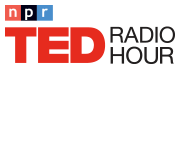Two greatgrandchildren of mine and I watched "Coco". It is a Pixar/Disney film about the Day of the Dead in Mexican culture and excellent. It is surprisingly complex and meaningful. The movie depicts the idea that there is a Land of the Dead and a dead person lives there as long as someone living remembers them. When the last person who remembers me dies, I will vaporize from the Land of the Dead and be no more. The concept reminds me of what I think I read about a Swahili concept I read about:
https://fearfunandfiloz.
If there are people who remember me in the Coco approach, I can dwell in the Land of the Dead. But when there are not, I am gone gone. The film shows the vapor of a person who is no longer remembered by anyone drifting off, much as smoke or fog drifts off. I like to think that vapor, smoke or bits of my grandmother are still around. I just don't know where they are and I won't recognize them if I find them. I like to think, as Bill Bryson puts it in his book "A Short History of Nearly Everything", that cells and their constituent molecules that constitute the current living form of me will someday not longer clump together and cooperate as they do now.
Instead my fluids will dry up and my cells will not adhere. It's like Julius Caesar. I suspect that I drank some of the water molecules that once were part of that mighty man but tonight were in my glass at dinner. Or maybe it was Charlemagne. I don't know. I do feel confident that I am of this world, as it is, even if I don't understand much of it, and even though I am approaching the time that I will be in a very different form than I am now.








